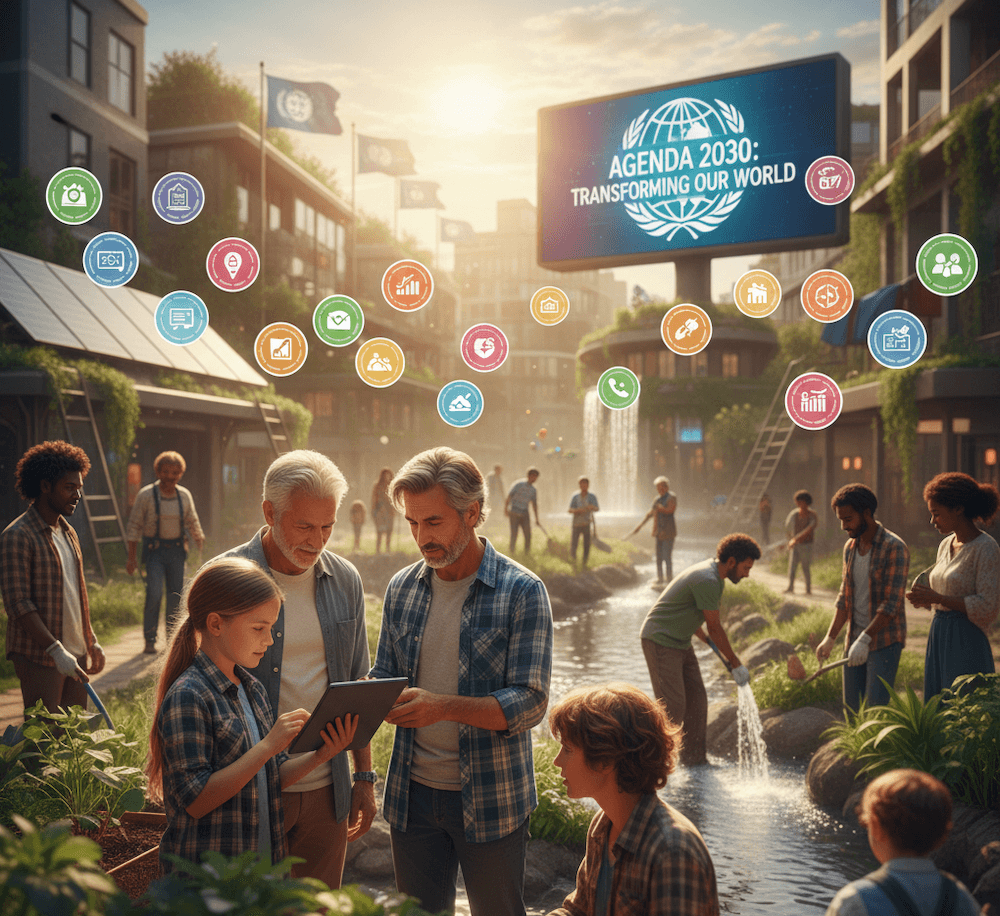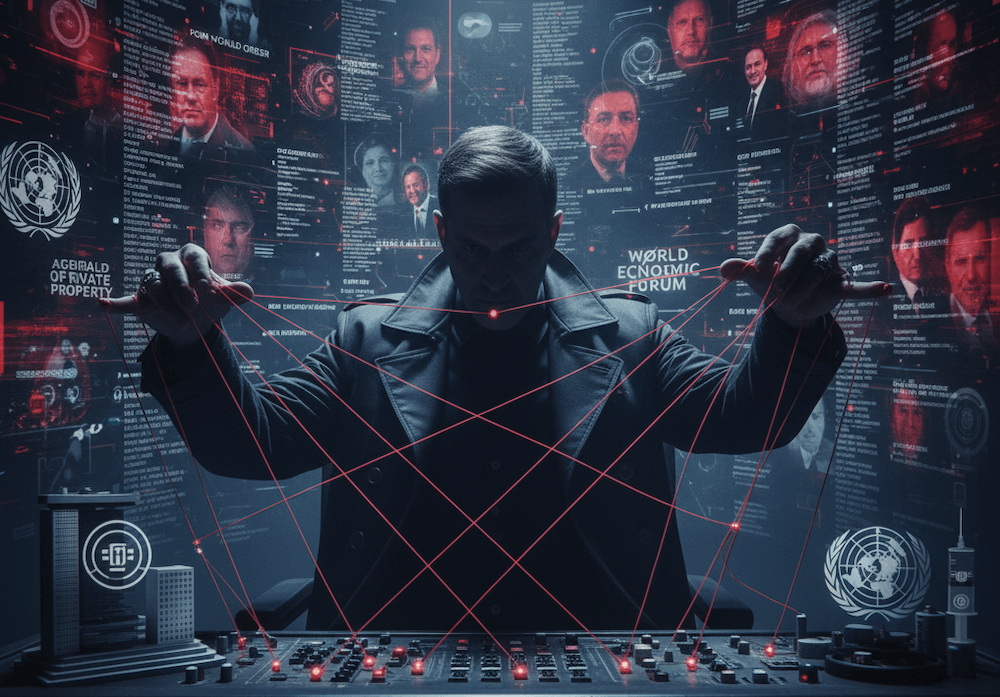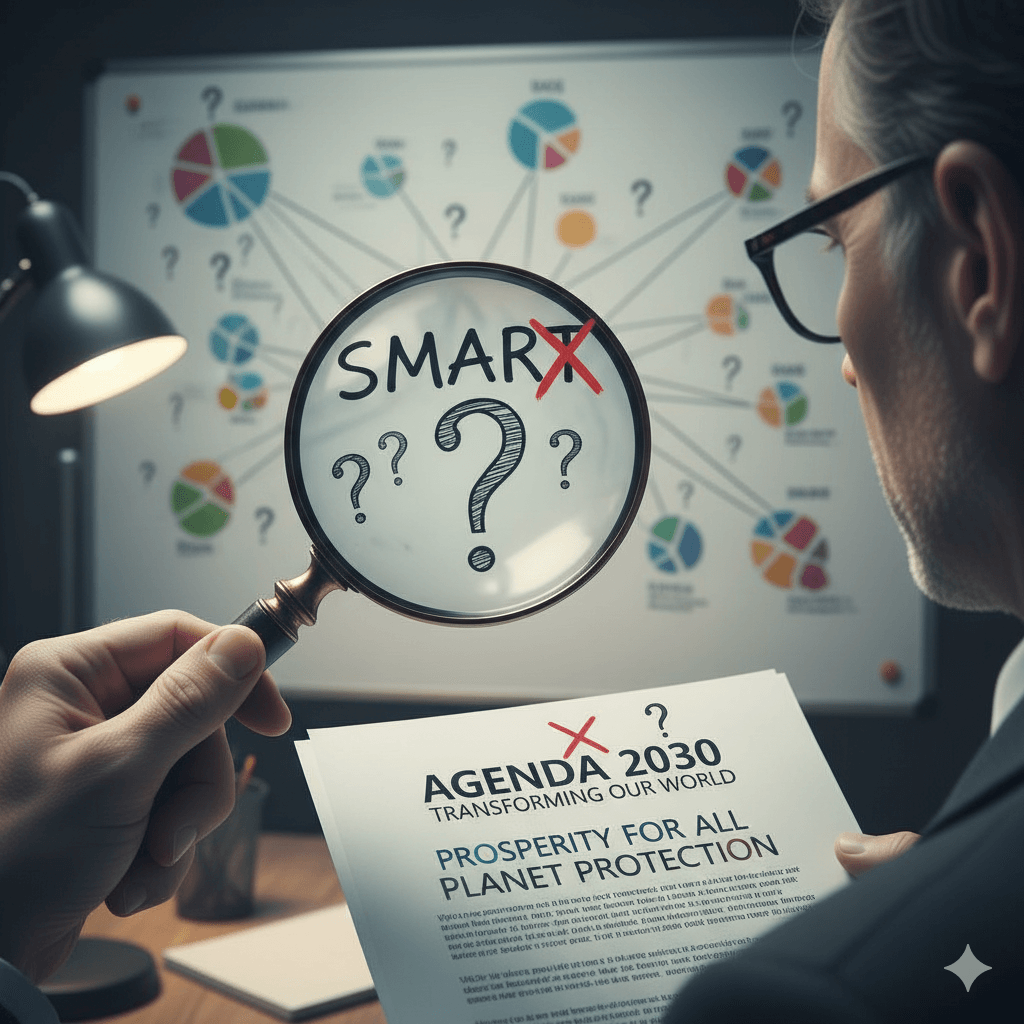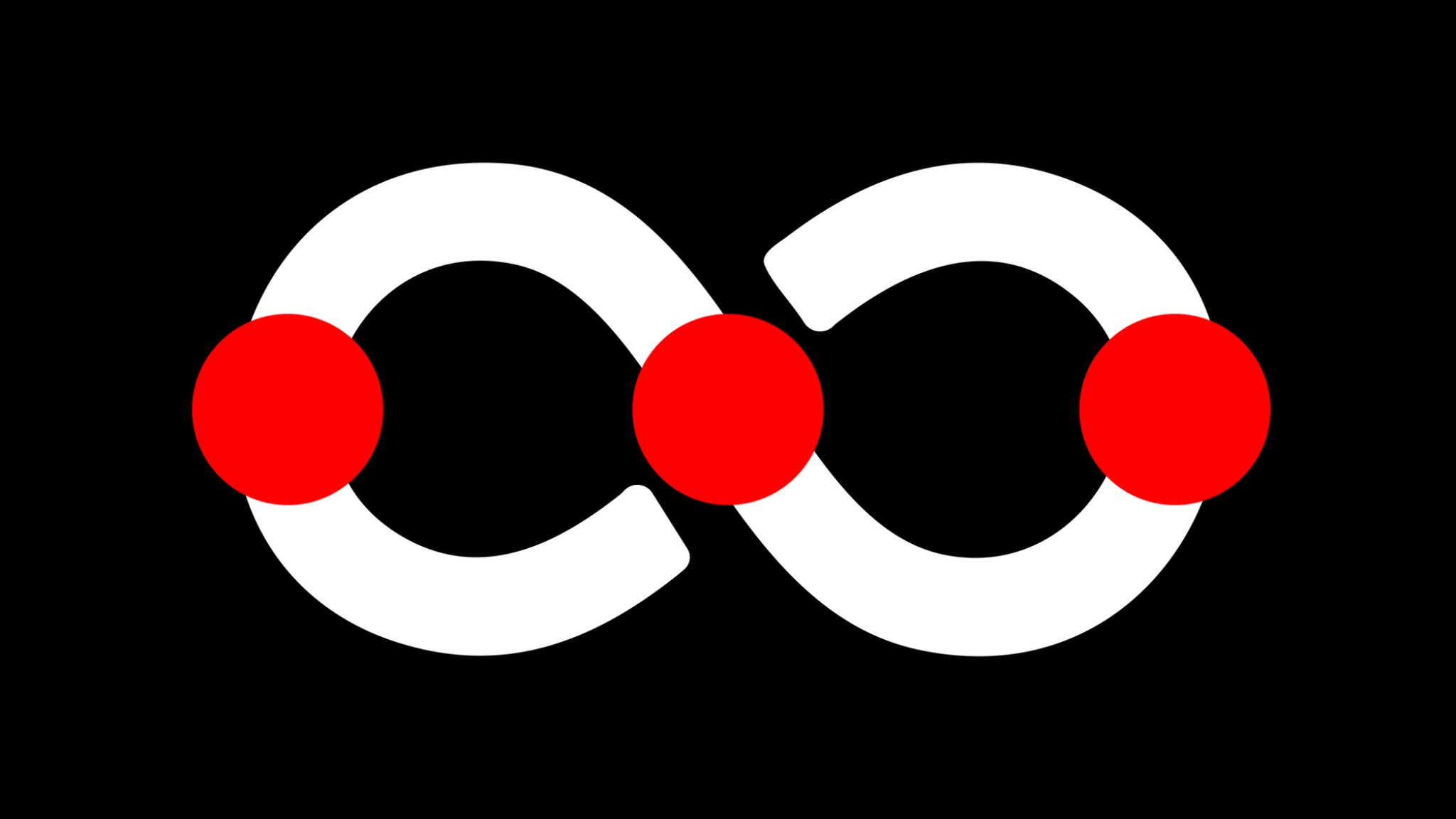Imagine this: Leaders from 193 countries all raise their hands in a bright conference room in New York. Today is September 25, 2015. Millions of people around the world believe that what they are voting for will either change the future of humanity or, worse, enslave it forever. This is the story of Agenda 2030, which is the most ambitious and possibly the most controversial plan the UN has ever come up with.

The Grand Vision: Changing the World in 15 Years
What started out as a "historic decision on a comprehensive, far-reaching, and people-centered set of universal and transformative Goals" has turned into the most talked-about plan in the world. The 2030 Agenda promised to end poverty, save the planet, and make sure everyone had a good life—all in just 15 years.
The architects came up with 17 goals that seemed noble: end poverty and hunger, make sure everyone has access to good education and healthcare, achieve gender equality, provide clean water and energy, create good jobs, build cities that last, fight climate change, protect life on land and in the water, promote peace and justice, and make global partnerships.
The size is amazing. It would cost $5 to $7 trillion a year to put this into action, which is more than the GDP of most countries. But the amount of money that is being invested right now is sadly not enough. Developing countries need $4 trillion a year to meet the Sustainable Development Goals set by the United Nations. It's either the best thing people have ever done together or the most expensive mistake.
The Academic Reckoning: When Dreams Meet Reality
But even before the conspiracy theories came out, academics were asking hard questions. Scientists pointed out a major problem: the goals were more like wishes than SMART (specific, measurable, achievable, realistic, and time-bound) goals. In other words, they were wishes pretending to be goals.
Critical researchers started to break down the language itself. Who were the "We the Peoples" mentioned in the UN Charter? When the document listed "governments, parliaments, the UN system, international institutions, CSOs, business, and the private sector" as stakeholders, it seemed like ordinary people were missing from this group of powerful people.
It was even more worrying that more and more people agreed that the agenda pushed a universalist template based on Western and neoliberal ideas. This was basically forcing Global North values on the whole world in the name of the common good.

The Beginning of a Conspiracy World
As problems with implementation became clear, something darker started to grow in the digital underground. Three conspiracy theories took shape: the "New World Order" theory, which says that secret elites control the fate of the world; the "wealth redistribution" theory, which says that powerful countries use the agenda to change the global economy to their advantage; and the "trickle-down communism" theory, which says that there has been a decades-long effort to slowly introduce Marxist ideas into Western societies.
A global pandemic was an unexpected event that turned fringe paranoia into mainstream political talk.
The Great Reset: Where Conspiracy Theory and Crisis Came Together
As the world was still reeling from COVID-19 in June 2020, the World Economic Forum started "The Great Reset," a project that called for changes to the economy after the pandemic. This was the smoking gun that conspiracy theorists had been looking for. Klaus Schwab and the WEF weren't only pushing for sustainable development; they were also using COVID-19 lockdowns to carry out a Machiavellian plan to reach evil goals.
The conspiracy smoothie was complete: global elites were using the pandemic to implement forced vaccination, digital ID systems, abolish private property, and establish technocratic control over humanity. Researchers were most worried that these stories showed real social anxiety about the restrictions that came with the pandemic, turning real fears into anti-institutional discourse.
Political Weaponization: From Forums to Voting Booths
The conspiracy theories didn't stay on internet forums. Political leaders all over Latin America started using anger against Agenda 2030 as a weapon. Javier Milei of Argentina declared war on what he called "cultural Marxism," and Nayib Bukele of El Salvador was very suspicious of UN international agendas.
In Europe, Spain's Vox party said the agenda was a threat to national sovereignty. In the United States, conspiracy theories affected Republican Party resolutions and were spread by conservative media figures like Tucker Carlson and Glenn Beck.
The Digital Amplification Machine
It turned out that social media algorithms sped up the spread of conspiracy theories. Terms like "Bill Gates depopulation" and "Agenda 2030 population control" brought a lot of people to the web, and platforms had a hard time balancing free speech with stopping false information. The theories used people's worries about climate change and the economy to turn proposed solutions into perceived threats.
The Dark Undercurrent: Old Biases in New Wrapping
Like many conspiracy theories in the past, antisemitic ideas started to show up. Conspiracy theorists began to say that the World Economic Forum was "controlled by Jews" and was setting up a "Zionist world government." They used old antisemitic ideas about Jewish control of the world and put them in modern language about sustainable development.

The Fact-Checkers' Fight Back
Professional fact-checkers started systematic campaigns to prove things wrong. Full Fact and BBC Reality Check are two groups that have carefully taken apart conspiracy theories. They have shown that there is no credible evidence for world government plots or plans to enslave people. They showed that Agenda 2030 is made up of goals that are not legally binding and are meant to help solve real problems around the world.
But fact-checkers had a big problem: even though conspiracy theories might start with "grains of fact," they quickly turn into complex fantasies that seem to meet psychological needs that facts alone can't.
The Hard Truth: Progress vs. Promises
In the meantime, the real story of how Agenda 2030 is being put into action is not a happy one. By 2030, most goals will probably still not be met. The COVID-19 pandemic, rising inequality, climate change, and the loss of biodiversity have made things impossible to fix, especially in areas that are already weak. Scientists are already asking for a complete redesign of the post-2030 framework because they see three major problems with the current one.
The Casualties of the Information War
It's especially sad that real worries about global governance, democratic representation, and economic inequality have become mixed up with paranoid conspiracy theories. Researchers have said that the best way to stop conspiracy thinking is to communicate science and evidence-based solutions better. However, this means rebuilding trust in institutions that many people think have let them down.
The Verdict: Neither Utopia nor Dystopia
The truth about Agenda 2030 is much less exciting than what its supporters and critics say. It is an imperfect and overly ambitious attempt at global cooperation that will neither save nor enslave humanity. Its real crime might be that it promises too much and doesn't deliver, which has created a credibility gap that conspiracy theorists have been able to exploit.
As we race toward 2030 with most of our goals unmet, the main question isn't whether the agenda is a secret plan for world domination, but whether countries can work together to solve real global problems while still respecting democratic values and national sovereignty.
In our fragmented information environment, the capacity to differentiate between valid criticism and delusional paranoia may ultimately dictate whether humanity can address its collective challenges through rational collaboration or become immobilized by conspiracy theories designed to protect us from imaginary dangers.
Time is running out until 2030. It's not a matter of whether the UN will take over the world; it's a matter of whether the world can take care of its own future.
"The real conspiracy isn't a secret group pulling strings; it's the complicated interaction of political, economic, and social forces that shape our world. These forces are mostly visible to those who choose to look, and they can be dealt with through democratic participation instead of fearful speculation."
Critical Thinking Reminder
When examining a conspiracy theory, ask yourself: What evidence would prove this false? Are the sources credible and independent? Do the claims require impossible levels of coordination and secrecy? Are there simpler explanations for the events?
